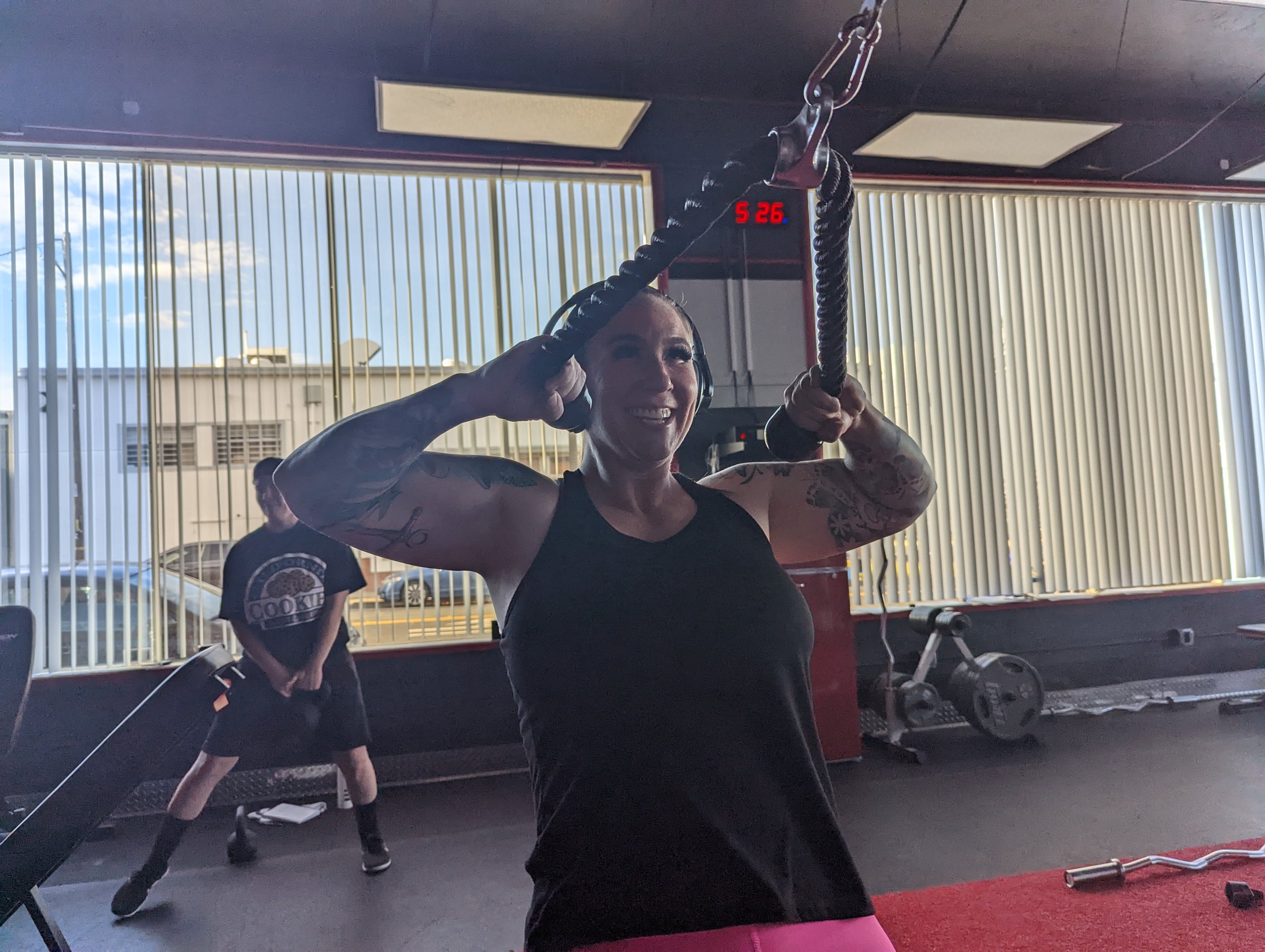
BLOGS
10 real life diet tips
Are you tired of diet tips handed out by someone with apparently unlimited income and time? For some of us, it may just not be practical to spend half of our Sunday preparing carefully portioned meals for the rest of the week, or financially feasible to buy all our meals prepackaged in just the right portions. And there are those of us who cringe at the thought of weighing food to achieve 'optimal portion sizes'. Here are ten real life diet tips for the rest of us.
1. Eating out? Restaurant portions tend to be enormous, and if it's on the plate, we tend to eat it. If it's possible, order from the kid’s menu, where portions are more reasonably sized.
2. Keep healthy snacks around and easily accessible. A bowl of fruit on the kitchen table, a container of celery or carrot sticks in the refrigerator, or a couple of pop-open cans of fruit salad in your desk at work will help you grab for something healthy when those first hunger pains begin. In other words, you'll be more likely to grab something low-calorie and good for you if it's easy to eat.
3. Substitute canned for frozen vegetables. Canned veggies tend to be high in sodium, which you don't need, and low in real nutrition, which you do. Buy economy size bags with zip closures to make it easy to pour out a single serving for a meal.
4. Buy a vegetable steamer. Steaming is one of the healthiest ways to cook vegetables. The food retains nearly all of its natural nutrients instead of leaching it out into the cooking water. Even better, it makes your veggies taste great - which means you'll be more likely to eat them instead of filling up on fatty foods that pack on weight.
5. Never eat standing up. One of the easiest ways to sabotage your diet is to 'eat without thinking'. Treat eating with the respect that it deserves. Fix yourself a plate. Sit down and eat properly. You'll be less likely to just pop food into your mouth without paying attention.
6. Spread your meals out. When you eat three meals a day, your body tends to store whatever it doesn't need right that moment. By adopting a 'grazing' habit, you'll keep your metabolism working throughout the day. Have a small breakfast, a piece of fruit with crackers or toast at mid-morning, a light lunch and an 'after school snack' mid-afternoon. Just remember that you're breaking up the same amount of food into smaller meals, not ADDING more food into your daily diet.
7. Grab a fruit juice or flavored water instead of soda. Soda is nothing but empty calories. No nutrients, lots of sugar. Instead, grab a bottle of 100% fruit juice, or water flavored with a spritz of fruit.
8. Drink water. Even the FDA recommends at least 8 full 8 ounce glasses of water a day to keep your body working right. When you're dieting, you should drink even more. It's not just that full feeling - water helps your body digest foods properly and cleans out your system.
9. Can't afford a gym membership? Make a pact with friends to exercise together. Make a date at least three times a week to play volleyball, take a walk or spend half an hour doing something active.
10. Skip the potato chips. Fatty snacks fried in hydrogenated oil like potato chips contribute fat and calories and not much else. Instead, grab a handful of dried fruit or a cup of yogurt for the same amount of calories and a lot more nutritional benefit.
5 components of physical fitness
Physical fitness is the ability to function effectively throughout your workday, perform your usual other activities and still have enough energy left over to handle any extra stresses or emergencies which may arise.
The components of physical fitness are:
Cardiorespiratory (CR) endurance - the efficiency with which the body delivers oxygen and nutrients needed for muscular activity and transports waste products from the cells.
Muscular strength - the greatest amount of force a muscle or muscle group can exert in a single effort.
Muscular endurance - the ability of a muscle or muscle group to perform repeated movements with a sub-maximal force for extended periods of times.
Flexibility - the ability to move the joints or any group of joints through an entire, normal range of motion.
Body composition - the percentage of body fat a person has in comparison to his or her total body mass.
Improving the first three components of fitness listed above will have a positive impact on body composition and will result in less fat. Excessive body fat detracts from the other fitness components, reduces performance, detracts from appearance, and negatively affects your health.
Factors such as speed, agility, muscle power, eye-hand coordination, and eye-foot coordination are classified as components of "motor" fitness. These factors most affect your athletic ability. Appropriate training can improve these factors within the limits of your potential. A sensible weight loss and fitness program seeks to improve or maintain all the components of physical and motor fitness through sound, progressive, mission specific physical training.
Principals of exercise
Adherence to certain basic exercise principles is important for developing an effective program. The same principles of exercise apply to everyone at all levels of physical training, from the Olympic-caliber athlete to the weekend jogger.
These basic principles of exercise must be followed.
Regularity
To achieve a training effect, you must exercise often. You should exercise each of the first four fitness components at least three times a week. Infrequent exercise can do more harm than good. Regularity is also important in resting, sleeping, and following a sensible diet.
Progression
The intensity (how hard) and/or duration (how long) of exercise must gradually increase to improve the level of fitness.
Balance
To be effective, a program should include activities that address all the fitness components, since overemphasizing any one of them may hurt the others.
Variety
Providing a variety of activities reduces boredom and increases motivation and progress.
Specificity
Training must be geared toward specific goals. For example, people become better runners if their training emphasizes running. Although swimming is great exercise, it does not improve a 2-mile-run time as much as a running program does.
Recovery
A hard day of training for a given component of fitness should be followed by an easier training day or rest day for that component and/or muscle group(s) to help permit recovery. Another way to allow recovery is to alternate the muscle groups exercised every other day, especially when training for strength and/or muscle endurance.
Overload
The work load of each exercise session must exceed the normal demands placed on the body in order to bring about a training effect.
5 easy ways to boost your metabolism
#1 Don’t skip breakfast
The morning meal jump starts your metabolism and helps to prevent bingeing later in the day. A cup of coffee does not count – the caffeine and added sugar may give you a bit of energy and suppress your appetite for a little while it is sure to back fire into severe hunger and you will be more likely to overeat later. Breakfast should include complex carbohydrates like whole grain (granola or oatmeal), along with some protein and fat (low-fat yogurt or milk), will keep your energy levels even and hunger in check.
#2 Eat more often
Get into the habit of eating every three to four hours or at least four times a day. Eating frequently stabilizes blood sugar, when blood sugar drops too low you want to eat…a lot. By keeping your blood sugar stable you can control your appetite and keep you metabolic rate high. When you go many hours without eating your body will compensate by slowing down to conserve energy…this effect hurts your weight loss efforts.
#3 Eat protein at every meal
Protein will help to reduce your appetite, it takes more energy and time to digest, in effect you feel full longer than eating carbohydrates alone. Research shows that eating more protein can help you lose weight without cutting calories. Try these protein possibilities: turkey on whole wheat; hummus and pita; vegetarian chili; fruit and nuts; or protein snack bars that contain 12 or more grams of protein.
#4 Hold off on snacking
Many of us grab a snack for quick energy when we are feeling tired. But do not confuse true hunger with fatigue. If you are feeling tired go for a 15-20 minute brisk walk. This will raise your heart rate and give you a boost of energy. Follow it up with a large glass of cool water. If you are truly hungry have a protein and complex carbohydrate rich snack like; whole wheat crackers and peanut butter or cheese.
#5 Consume enough for your body’s needs
Eating too little slows your body’s metabolism the same way eating to infrequently does. If you want to lose weight, do not slash your calories too drastically. Instead, cut out some of the extras in your diet – things like soda, juice, packaged goods or candy. Processed foods tend to be high in fat and calories and low in vitamins, minerals and fiber.
